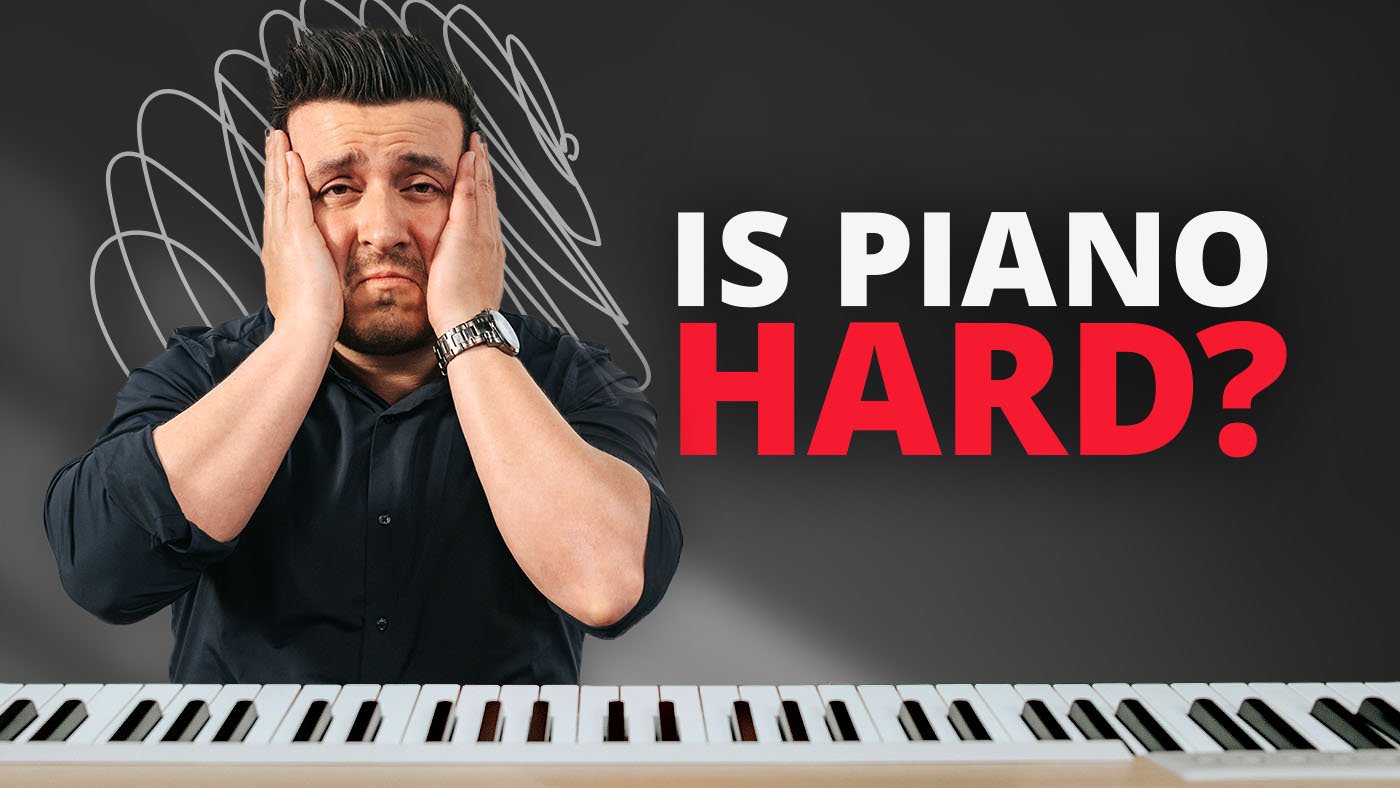
Is piano hard to learn? Well, yes and no. The piano is one of the easiest instruments for beginners to learn. But it is also one of the hardest instruments to master.
Why is this? The piano is simple in some ways. Someone with no musical experience can sit down and learn a simple melody in a few minutes. You don’t need to tune the piano, and you don’t need to learn a special technique like picking, fretting, sticking, or embouchure (blowing) to make a pleasant sound.
In some ways, playing piano is just pressing buttons. Yet some of the most advanced music ever written is for piano, and the top piano players in the world spend entire lifetimes honing their craft.
So, let’s dig into exactly what makes the piano so easy yet so difficult at the same time.
Table of Contents:
Inspiring tutorials. Fascinating articles. Exclusive interviews. We create piano content anyone, anywhere can enjoy for free. Don't miss out—sign up today!
By signing up you’ll also receive our ongoing free lessons and special offers. Don’t worry, we value your privacy and you can unsubscribe at any time.
There are several factors that make piano uniquely challenging. These include playing with both hands, reading both treble and bass clef, and accessibility.
Let’s jump straight into one of the hardest things for beginners to learn: playing with both hands at the same time. This is a skill that takes time and experience to develop. At first, it’ll feel like you know what to do, but your hands just won’t listen! It’s like rubbing your belly and tapping your head at the same time. It’s a weird, alien feeling that takes getting used to. You may also feel that your non-dominant hand lags behind.
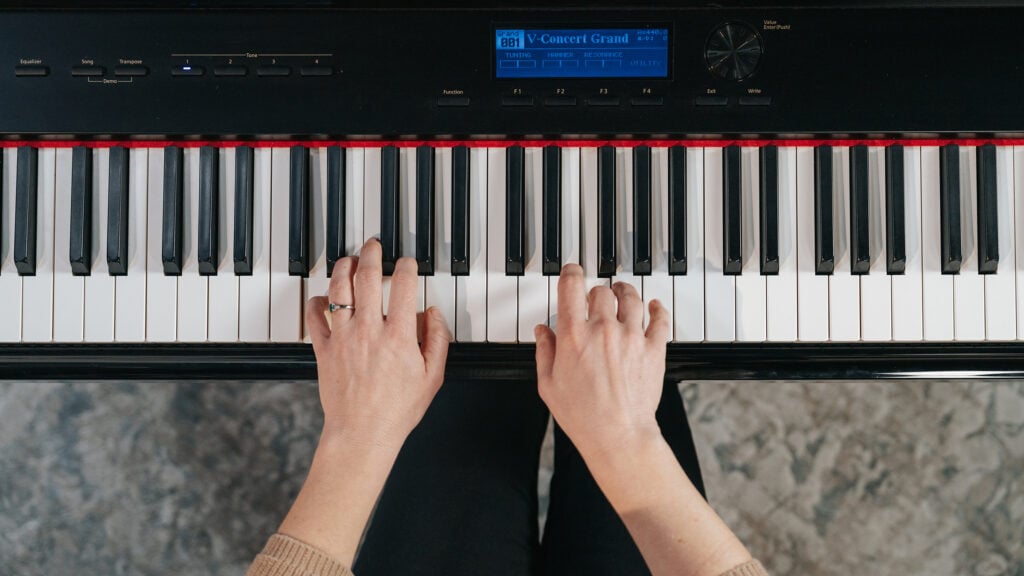
Many people struggle with reading sheet music. It’s like learning another language. Piano players, especially, have the added challenge of needing to learn both treble and bass clef. And while you can absolutely play at a high level without ever learning how to read sheet music, knowing how to read standard notation opens up opportunities.
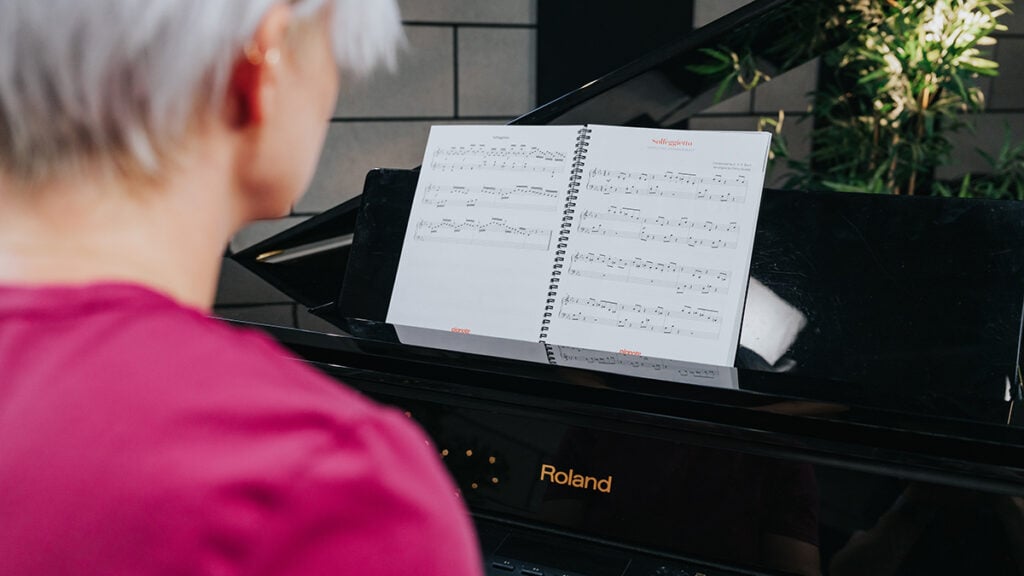
> The Ultimate Beginner’s Guide to Reading Music
Pianists are lucky in that theory is easily explained using a piano keyboard. The keyboard interface makes a lot of sense: notes are laid out in a row from low pitch to high. But while other instruments often play just one line of music (the melody), the piano is special because we can play melody and harmony at the same time. This is a beautiful thing and what makes the piano so special. But it also requires us to know a lot about chords and chord theory, which can be tricky.
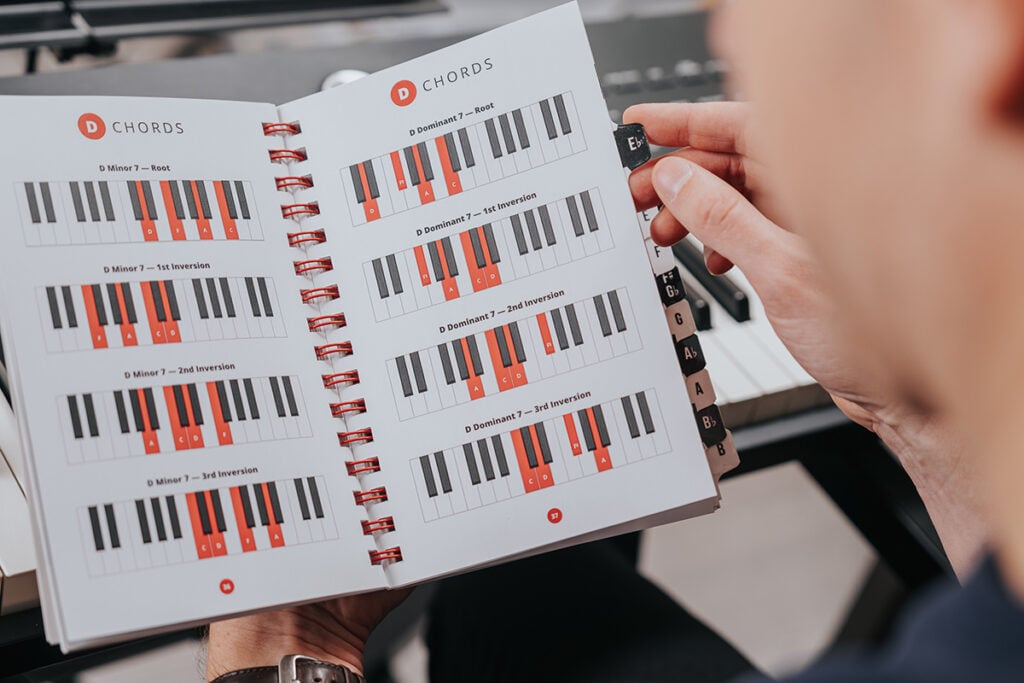
> Music Theory Basics: What to Learn First
Let’s face it: pianos are expensive. It’s important to learn piano on an instrument that has a full-size, 88-key keyboard and weighted keys. But this might not be accessible to everyone. Pianos are also big and heavy: you can’t practice on the go and when you perform, it’s often on a piano that feels completely different from your own. Not everyone needs a grand piano, though; today’s keyboards are very sophisticated instruments. A high-quality digital piano is perfectly acceptable to learn on!

Finally, one of the hardest things is practice! There’s no way around it: to get good at piano, you have to practice. And it takes time: when we surveyed pianists, we learned that it takes four to five years of consistent practice to become an intermediate pianist. Practice can be frustrating, time-consuming, and tedious, but persistence is key. If you practice smart and put in your hours, you will get better!
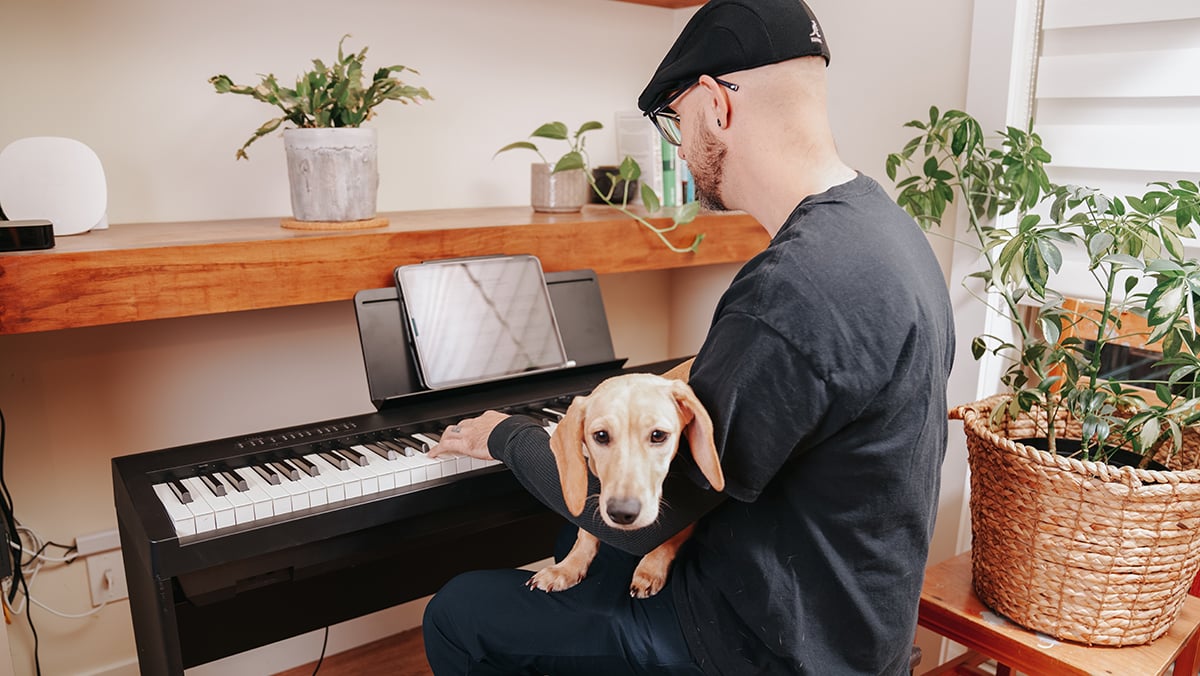
> Piano Practice Motivation: How to Keep Playing for Life
So, is piano hard to learn? It can be! And while there’s no magic pill to make you a pro pianist overnight, we do have some tips to make the journey a little easier.
Don’t waste time playing classical music if you don’t like classical music. If you love Elton John, focus on the skills that will help you master Elton John’s music. This might look like focusing on learning chord symbols and how to sing and play at the same time, rather than reading complex sheet music or memorizing Italian terms. What makes the piano so awesome is its versatility: you can play nearly any genre under the sun!
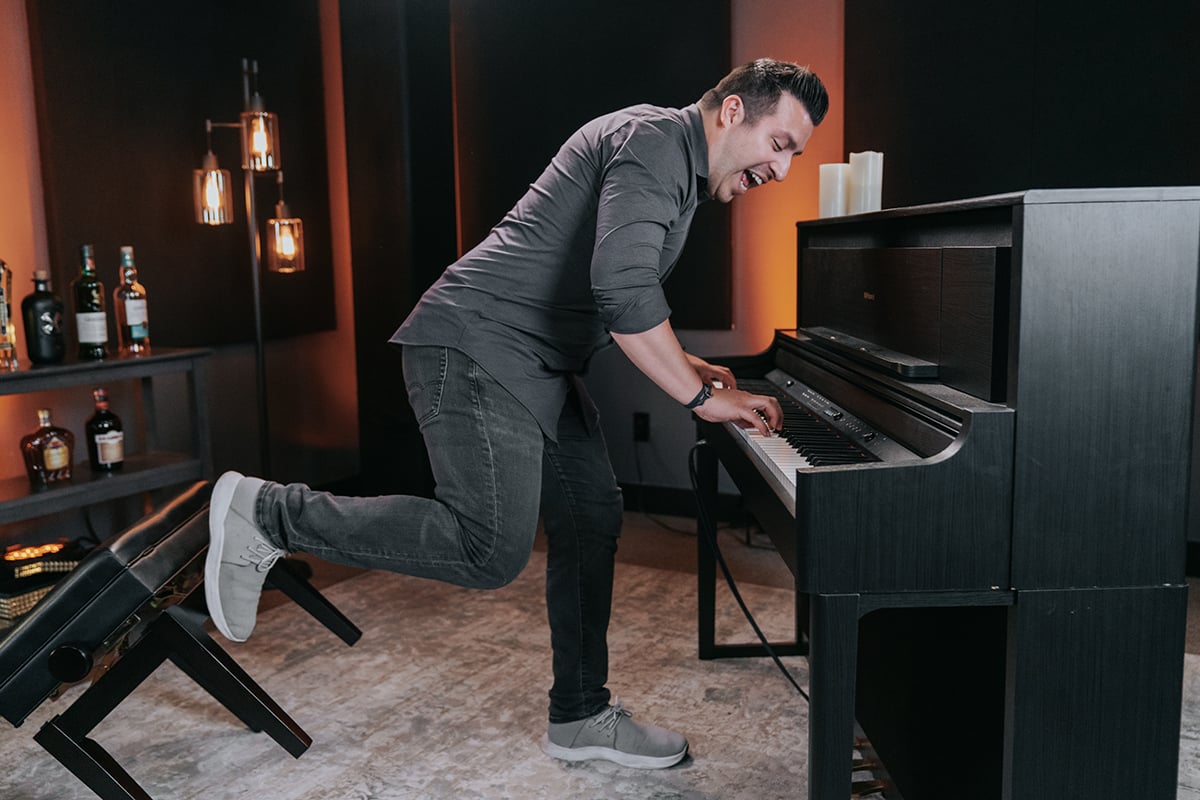
Free resources for lovers of all genres:
The piano is one of the most popular instruments, so naturally, there are tons of teachers, programs, books, and YouTube tutorials available. All these options can feel overwhelming. But we all learn in different ways, so it’s reasonable to try a few methods to see which works best for you. Pro pianist Sangah Noona advises students to stick to a single method for a while (three months is a good amount of time) before moving on. You can also mix and match methods: for example, you can sign up for an online learning program but check in with an in-person teacher once a month, or supplement your program with books.
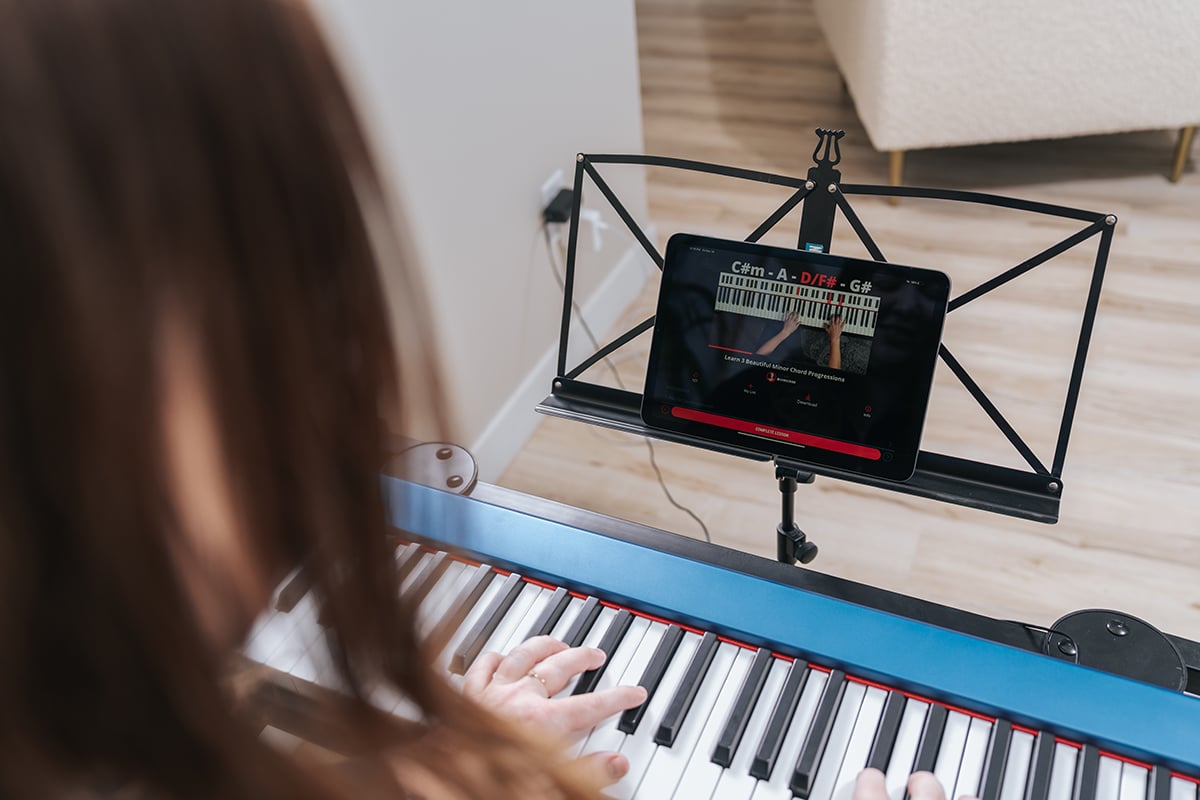
Free resources about learning methods:
Try your best to learn on a piano with weighted keys. This means that when you press lightly, the piano will sound soft and if you press harder, the piano will sound louder. The good news is you don’t need to spend a fortune on an acoustic piano for this feature; today’s digital pianos have sophisticated, realistic weighted action and are quite affordable. Learning on an instrument with weighted keys will go a long way in developing correct technique from the start.

Free resources to help you choose a good beginner instrument:

Over the years, we’ve come up with some tried-and-true practice tips that help us stay motivated and working towards our goals:
We hope this article answers the question, “Is piano hard to learn?” Remember: it’s normal to feel frustrated and piano is supposed to be challenging. You’re not alone, and if you keep practicing, you will get closer to your goals!
Knowing that “why” helps you connect the piano to your passion, and acts as an anchor that you can hold on to when trying to figure out how to stay motivated at the piano.
Lisa Witt
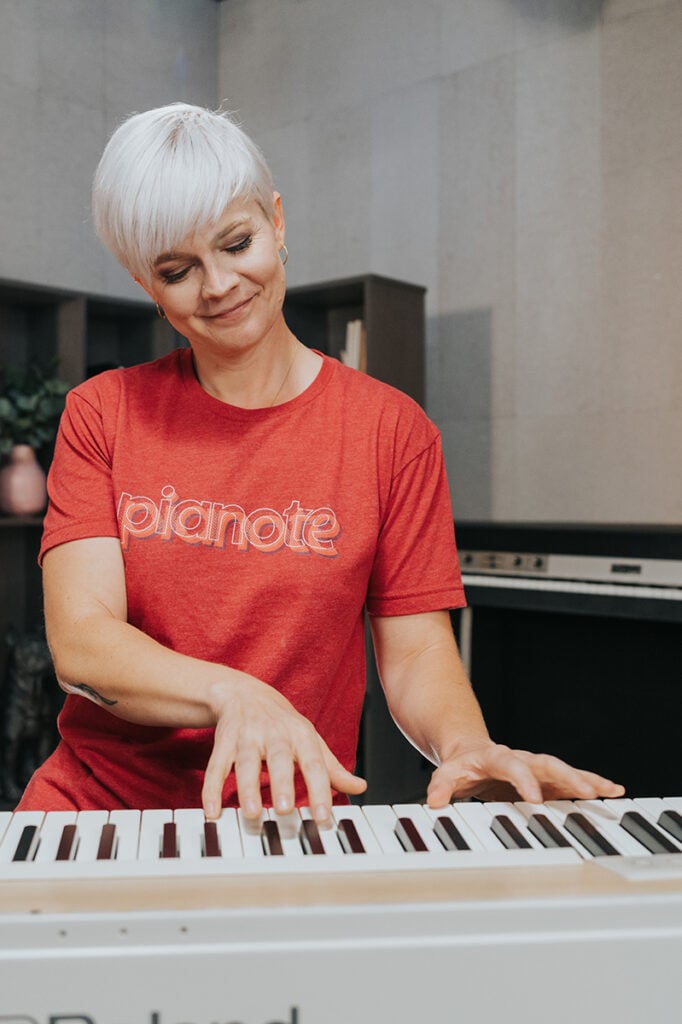
Get real feedback from real experts…all from the comfort of your own home. Explore our Method and community for yourself with a free trial.
Charmaine Li is a Vancouver writer who has played piano for over 20 years. She holds an Associate diploma (ARCT) from the Royal Conservatory of Music and loves writing about the ways in which music—and music learning—affects the human experience. Charmaine manages The Note. Learn more about Charmaine here.
/marketing/pianote/promos/april/banner-bg-m.webp)
We use cookies for traffic data and advertising. Cookie Policy »
/marketing/pianote/promos/april/banner-title.webp)